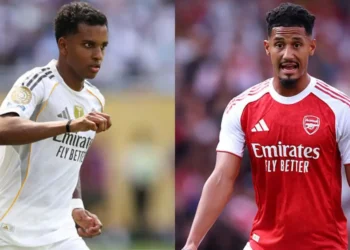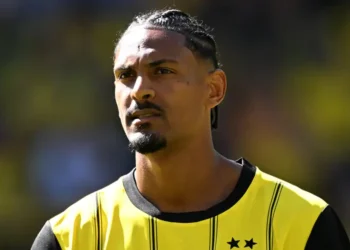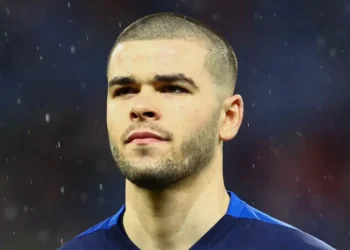In a dramatic turn of events that has rocked Polish football, national team manager Michal Probierz has resigned following a bitter captaincy dispute with star striker Robert Lewandowski. The controversy, which had been simmering for months behind closed doors, came to a head when Lewandowski, frustrated and disillusioned, announced his intention to quit international football amid growing tensions within the squad.
The conflict centers on a decision by Probierz earlier this year to strip Lewandowski of the national team captaincy—a role he had held since 2014—and reassign it to rising midfield star Piotr Zieliński. The move, reportedly intended to inject fresh leadership into a team struggling to find its rhythm in recent international fixtures, backfired spectacularly. Not only did it alienate one of Poland’s greatest-ever players, but it also created a significant rift in the locker room.
Sources close to the Polish Football Association (PZPN) indicate that the decision was made without consulting senior players or Lewandowski himself. While Probierz cited the need for “strategic leadership changes” in the lead-up to Euro 2024, many saw the act as a blatant show of authority, designed to assert control over an increasingly fractured squad.
Lewandowski’s reaction was swift and firm. The 36-year-old striker, who currently plays for FC Barcelona and remains one of the most prolific forwards in Europe, issued a public statement shortly after the captaincy announcement. “I have always played with my heart for Poland. But respect and trust are mutual. If that is broken, I must reconsider my place in the national team,” Lewandowski wrote. He went on to confirm that he would not join the upcoming international fixtures, effectively stepping away from international duty.
The fallout was immediate. Fan backlash against Probierz intensified, with many questioning why the manager would provoke such a conflict with Poland’s all-time leading goalscorer. In Warsaw and across the country, Lewandowski remains a national icon, revered not only for his goal-scoring prowess but also for his professionalism and commitment to the national side over nearly two decades.
Media outlets across Europe speculated that the rift would not be repairable, and calls grew for Probierz to step down. Despite initial resistance and a defiant press conference in which he maintained that “no player is above the team,” Probierz reportedly lost the support of several senior figures within the PZPN, including some members of the executive board.
Late last night, the news broke: Michal Probierz had submitted his resignation. In a short statement, he said, “I have always worked in the best interest of Polish football. However, recent events have created divisions that I believe are detrimental to our goals. I step aside so that unity can be restored.”
For Lewandowski, it is a moment of personal and professional vindication. Though he has yet to confirm whether he will return to the national team following Probierz’s departure, sources close to the striker suggest he is open to a comeback—provided that the next managerial appointment ensures a respectful and collaborative environment.
The striker’s decision to walk away in protest was not only a personal stand but also a symbol of player empowerment in modern football. At a time when player-coach relationships are under increasing scrutiny, especially in the national team context, Lewandowski’s stance may set a precedent for other veteran players unwilling to be sidelined without due process or communication.
The Polish Football Association now faces a critical juncture. With Euro 2024 qualifiers resuming soon, the search for a new manager will be fast-tracked. Names already circulating include former national team coaches Adam Nawałka and Jerzy Brzęczek, as well as foreign candidates with international experience. Whoever takes over will inherit a squad in need of healing, a fractured dressing room, and a national hero whose trust must be regained.
For now, Robert Lewandowski’s legacy continues to grow—not just as a legendary goalscorer, but as a leader unafraid to defend his principles. Whether or not he returns to wear the white and red of Poland, his impact on the national team—and this dramatic chapter in Polish football—will be remember
ed for years to come.











